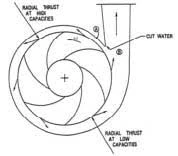Mobile:+86-311-808-126-83
Email:info@ydcastings.com
7 pipe cap
Understanding 7% Pipe Cap Importance and Applications in Industrial Settings
The term 7% pipe cap is commonly referenced in various industrial contexts, particularly in fields such as engineering and construction. While the phrase can be somewhat ambiguous, it typically relates to the measurement and specifications of pipes and caps used in different applications, including plumbing, oil and gas, and chemical processing.
What is a Pipe Cap?
A pipe cap is a fitting used to cover the end of a pipe. It serves a crucial role in the piping systems by sealing off the end to prevent the entry of debris, moisture, and other contaminants. Pipe caps are available in various materials, including metal, plastic, and rubber, and can be found in different sizes and pressure ratings to suit the specific requirements of any piping system.
The Significance of a 7% Pipe Cap
The designation 7% in the context of a pipe cap often relates to the capability or tolerances associated with the cap or the pressure it can withstand. In engineering, specifications and tolerances are vital for ensuring the safety and efficiency of piping systems. A 7% tolerance might indicate that the pipe cap can handle variations in size or pressure within that percentage, which is crucial in high-stakes industries where precision is essential.
Applications of Pipe Caps in Various Industries
1. Water Supply and Plumbing In residential and commercial plumbing, pipe caps are routinely used to seal the ends of pipes. Using caps with appropriate tolerances ensures that connections do not leak, leading to water conservation and preventing plumbing disasters.
7 pipe cap

2. Oil and Gas In the petroleum industry, pipe caps play a vital role in safeguarding pipelines that transport oil and gas. The 7% specification could pertain to the cap’s ability to withstand high pressures typical in these environments. Proper sealing prevents spills, which can have disastrous environmental consequences.
3. Chemical Processing In chemical manufacturing, using appropriate pipe caps is essential to secure hazardous materials. The risk of leaks in such environments can have severe safety implications, and thus, the durability and reliability of caps are paramount.
4. Construction When constructing infrastructures such as bridges, buildings, or tunnels, pipe caps are integral components in different systems, including drainage and structural supports. They ensure that construction materials are protected until they are ready for use.
Choosing the Right Pipe Cap
When selecting a pipe cap, several factors need to be taken into consideration
- Material Compatibility Ensure the cap material is compatible with the fluids or gases that will pass through the pipes. - Size and Fit The cap must properly fit the pipes it is capping. Proper sizing prevents leaks and ensures system integrity. - Pressure Rating Understanding the pressure requirements is essential. A pipe cap with a required tolerance, such as 7%, must be chosen to avoid failures under dynamic conditions. - Environmental Conditions For outdoor or harsh environments, choosing caps that can withstand temperature fluctuations, UV exposure, and chemical corrosion is crucial.
Conclusion
In summary, the concept of a 7% pipe cap encompasses not only the physical attributes of pipe caps but also the essential tolerances and specifications that ensure the efficiency and safety of various piping systems. Understanding these elements is vital for engineers, manufacturers, and contractors involved in any industry that relies on effective piping solutions. With proper selection and application, pipe caps can significantly enhance the longevity and reliability of piping systems across various fields, contributing to safer and more efficient industrial processes.
-
Why Should You Invest in Superior Pump Castings for Your Equipment?NewsJun.09,2025
-
Unlock Performance Potential with Stainless Impellers and Aluminum End CapsNewsJun.09,2025
-
Revolutionize Your Machinery with Superior Cast Iron and Aluminum ComponentsNewsJun.09,2025
-
Revolutionize Fluid Dynamics with Premium Pump ComponentsNewsJun.09,2025
-
Optimizing Industrial Systems with Essential Valve ComponentsNewsJun.09,2025
-
Elevate Grid Efficiency with High-Precision Power CastingsNewsJun.09,2025











